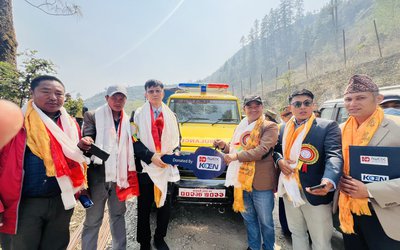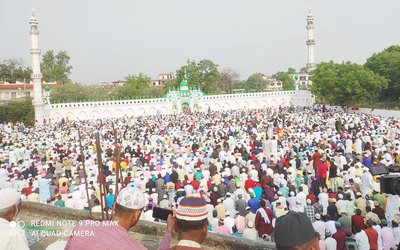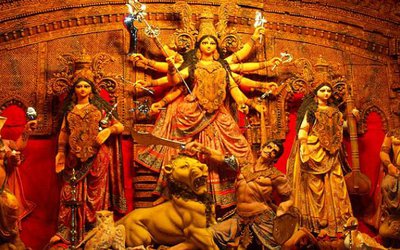
As Nepali Congress, Kathmandu district, hosted a program to celebrate the birth centenary of Ganesh Man Singh on November 11, another group of Congress sympathizers gathered at a different program to remember another tall leader of Nepali Congress, late Subarna Sumsher Rana, for his revolutionary zeal against the Ranas.
For Nepali Congress, this year is important for commemorating the centenary events for two of its towering leaders, late B.P. Koirala and Ganesh Man Singh. Although many Nepali Congress leaders forgot the revolution day, there were people who still saw the day of November as an important day in Nepal’s political history.
Although Nepali Congress party has hardly made any efforts to remember their founding leaders like Subarna Sumsher and Surya Prasad Upadhyaya, the contribution and sacrifice made by them in Nepali political movement is immense.
Along with B.P. Koirala, Ganesh Man Singh and Krishna Prasad Bhattarai, Subarna Sumsher is also one of the founders of Nepali Congress. Despite his immense contribution in liberal democratic movements of Nepal, only a few young Nepalese today know him.
Although Subarna Shumsher was born in a ruling Rana family, an oligarchy that ruled Nepal for 104 long years, he took part actively in the rebellion of November 11, 1950. Gentle and intellectual, Subarna Sumsher was among a few politicians who made all out contributions to topple the Rana regime.
Far-sighted, morally balanced and politically calculative, Subarna Sumsher Rana saved the party and democracy even during the hard time after 1961. Had not he led the party and handed over the party presidentship to B.P. Koirala, Nepali Congress would have vanished as many other parties. He saved the party when all its main leaders were either in prison or exile like him.
After the political upheaval of 1961, Subarna Shumsher Rana supported party cadres and leaders in exile for almost two decades. An intellectual figure of Nepali politics, he always inspired his cadres to be moral and faithful to the ideology of liberal democracy.
Had Subarna Sumsher Rana not joined the revolution against the Rana regime, Nepali Congress would probably never have succeeded in doing what it did. Subarna started the revolt within the Rana family. Subarna Sumsher had not only provided mental strength but also provided much needed financial support to Nepali Congress and revolution.
“The revolution day was important in the history of Nepal,” said Dr. Hari Prasad Gautam president of Subarna Memorial Trust.” The Trust organized the program to remind the younger generation about the importance of the day.
Although centenarian Memorial Day of Ganesh Man Singh was widely covered, Revolution day organized to remind Subarna Sumsher's rebellion was rarely mentioned in the leading papers. Along with Subarna Sumsher, Nepali Congress buried the name of another equally intellectually powerful leader Surya Prasad Upadhyaya.
As William Wordsworth says they are unsung and unheard heroes of Nepali politics.
- IME GROUP: Expands Into Paper Industry
- Mar 24, 2025
- CPN UML: Instigated By India
- Mar 23, 2025
- ADB’S CHIEF ECONOMIST: Nepal Reduces Poverty
- Mar 11, 2025
- FM DR. DEUBA: A Successful Visit
- Mar 11, 2025
- MD GHISING: Target Of Personal Grudge
- Mar 09, 2025















